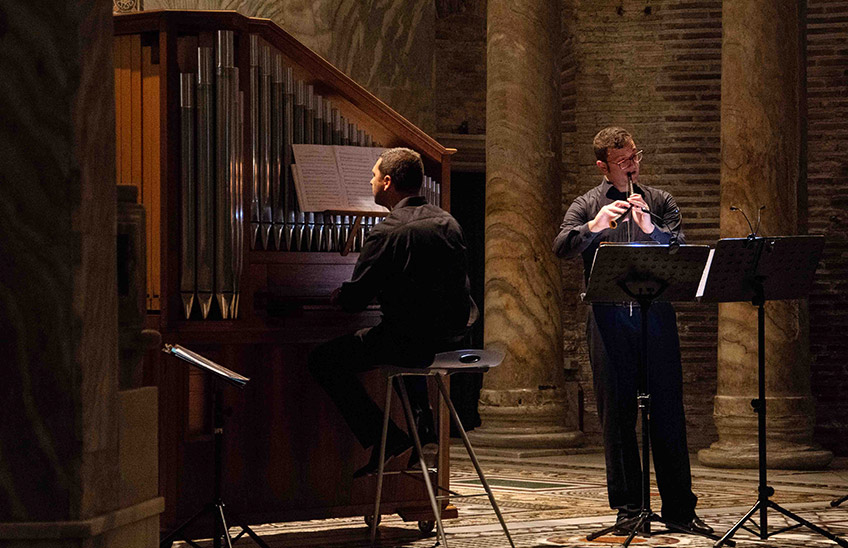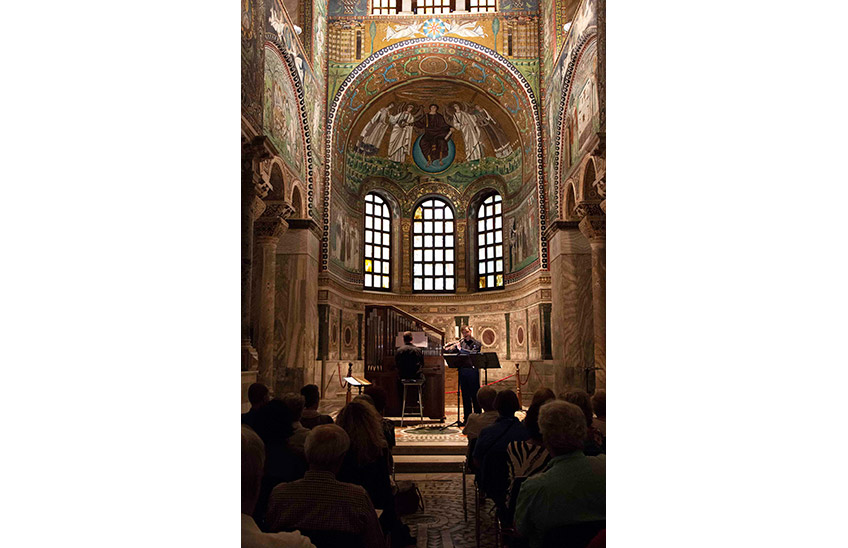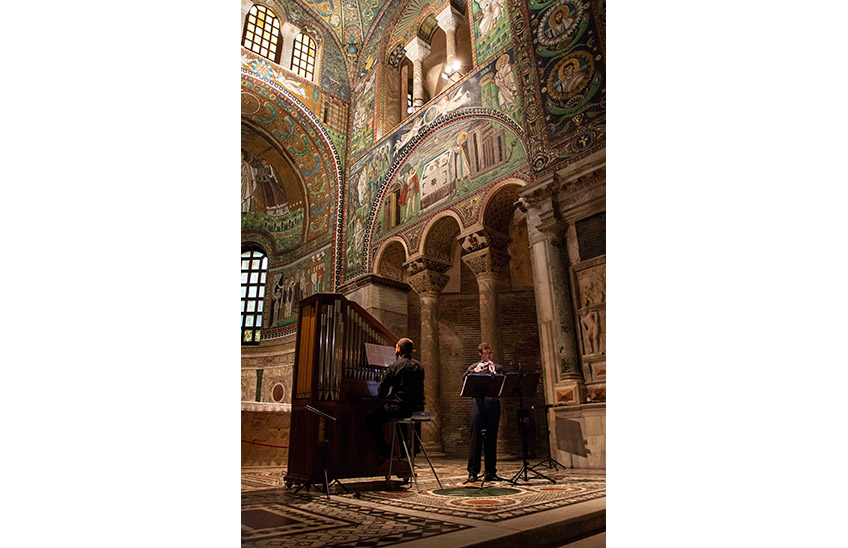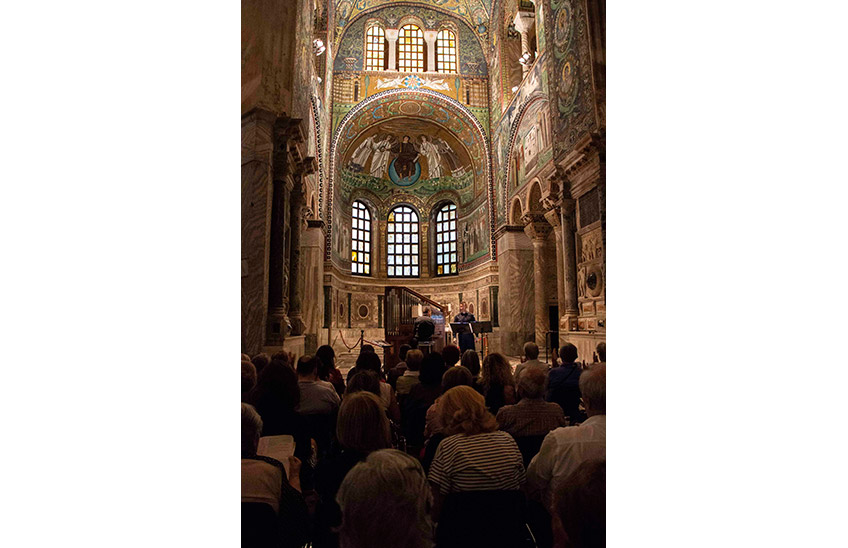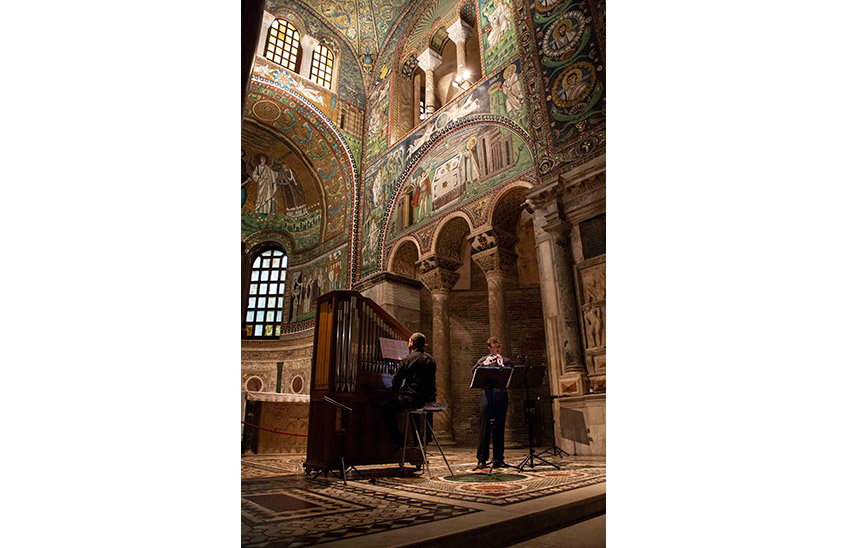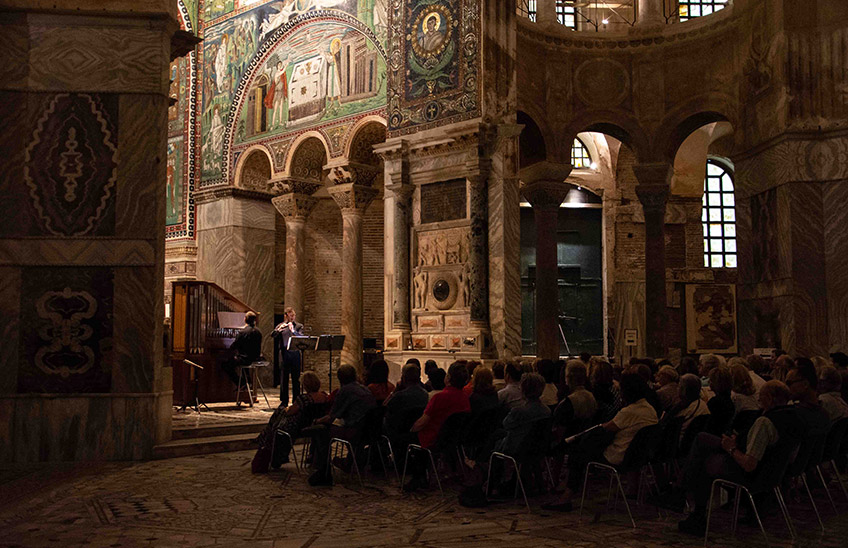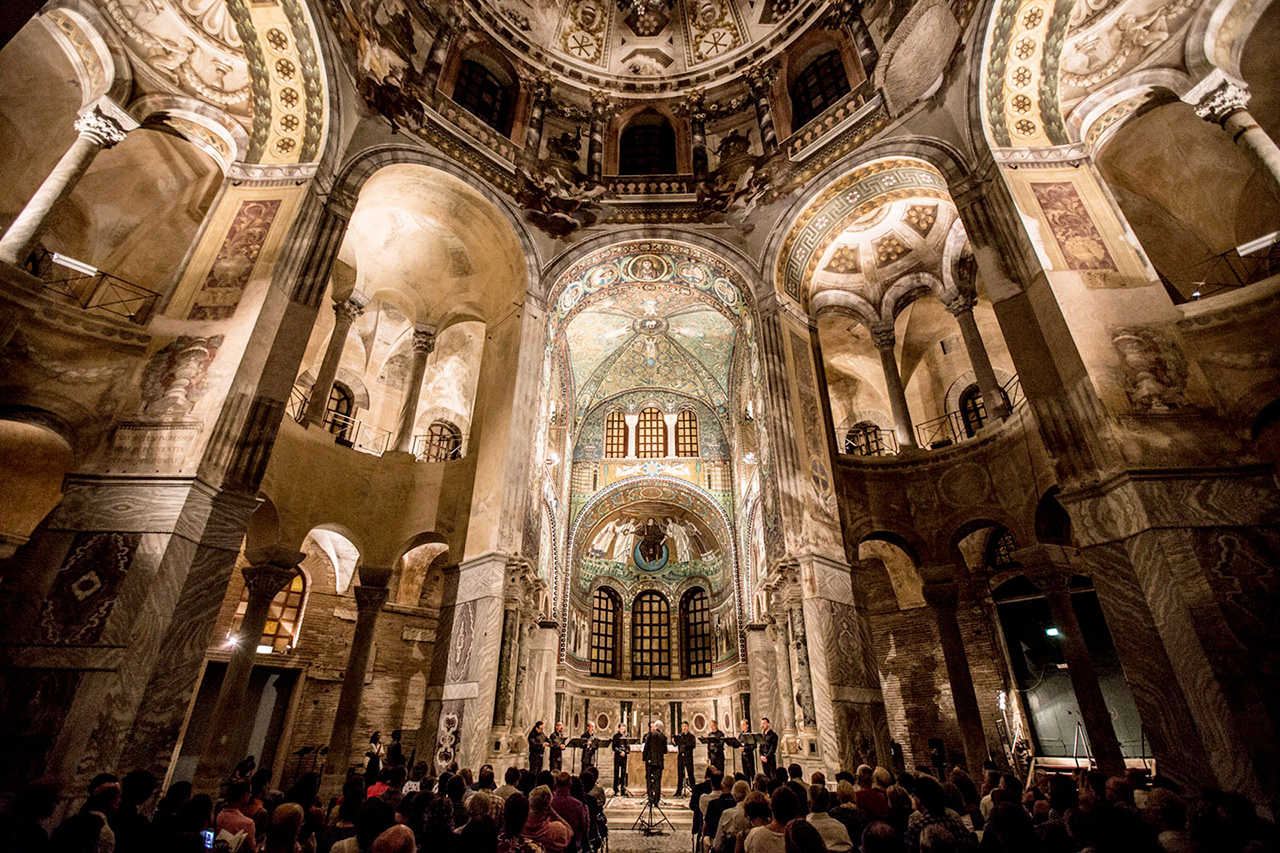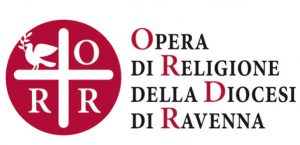© Martina Zanzani
Vespri a San Vitale
Eccentric XVII century
David Brutti cornetto
Nicola Lamon organo
Andrea Gabrieli (1533-1585)
Intonazione del Secondo Tono
Gioseffo Guami (1542-1611)
“L’accorta” da Canzonette alla Francese (Antwerpen, 1601)
Dario Castello (? – ca. 1658)
Sonata seconda a Sopran solo, da Sonate concertate in stil moderno (Venezia, 1621)
Gioseffo Guami
Fantasia in modo di Canzon Francese
Giovanni Battista Bovicelli (1550-1594) / Cipriano De Rore (1515 ca. – 1565)
“Angelus ad Pastores” da Regole, passaggi di musica
(Venezia, 1593)
Angelo Notari (1566-1663)
“Ahi che s’acresce”, da Prime musiche nuove (Londra, 1613)
Andrea Gabrieli
Intonazione del Quinto Tono
Giovanni Gabrieli (1557-1612)
Canzon Seconda, da Canzoni per sonare con ogni sorta di stromenti (1608)
Fabrizio Fontana (1620-1695)
Sonata prima a violino solo da Sonate a 1 2 e 3 per il Violino (Venezia, 1628)
Giovanni Gabrieli
Toccata del Secondo Tono
Giovanni Legrenzi (1626-1690)
“En gentes desideratum tempus” da Acclamationi divote a voce sola, Libro Primo, Op. X (Bologna, 1670)
Thomas Crequillon (ca. 1505-1557) / Girolamo Dalla Casa (? – 1601)
“Oncques amour” da Il vero modo di diminuir (Venezia, 1584)
Andrea Gabrieli
Canzon detta “Qui la dira”, da Canzoni alla francese per sonar sopra stromenti da tasti, Libro VI
(Venezia, 1605)
Andrea Falconieri (ca. 1585-1656)
“La Monarca” a violin solo, da Il Primo libro di canzone, sinfonie… (Napoli, 1650)
Anonimo
“El bisson” (pavana) da Manoscritto, D-Mbs Mus.ms
Eccentric par excellence, the XVII century alternates moments of visionary quirkiness and peaks of hieratic formal classicism: such constant balance of genres makes the heart of the “Baroque” so fascinating to our eyes. But the term “Baroque” covers too vast a period, and contains too many different elements. Thus it is preferable to talk about the “eccentric XVII century” rather than the Baroque. The Neapolitan poet Giovanni Battista Marino wrote: “the aim of the poet is the marvellous, / (I speak only of the excellent, not of the inept): / let him who cannot amaze work in the stables!” That is: the audience must be shocked by the poet’s art, as long as the quality of the artistic product is not poor. The same spirit lies behind this concert, whose programme features the best that Italian courts could offer in a period dominated by the poetics of the marvellous.
